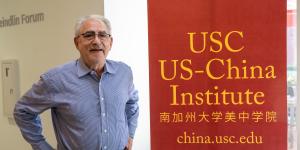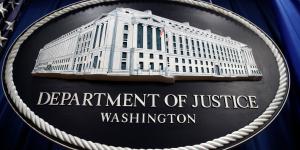Join us for a free one-day workshop for educators at the Japanese American National Museum, hosted by the USC U.S.-China Institute and the National Consortium for Teaching about Asia. This workshop will include a guided tour of the beloved exhibition Common Ground: The Heart of Community, slated to close permanently in January 2025. Following the tour, learn strategies for engaging students in the primary source artifacts, images, and documents found in JANM’s vast collection and discover classroom-ready resources to support teaching and learning about the Japanese American experience.
Science and Technology
Video: David Zweig Speaks On The War For Chinese Talent In The United States

David Zweig is a renowned scholar who focused on China's efforts to build its talent. His insight into the War For Chinese Talent provides us with a different way to look at policy implications for Chinese scholars.
Passings, 2023

We note the passing of many prominent individuals who played some role in U.S.-China affairs, whether in politics, economics or in helping people in one place understand the other.
Nationalism and Silicon
Technonationalism is on the rise in both the U.S. and China.
Science Diplomacy at a Crossroads

Science and Technology Agreement Renewal Debate: Balancing SciTech Ties & Security beyond August 27th.
Joe Biden, Executive Order on Addressing United States Investments in Certain National Security Technologies and Products in Countries of Concern, August 9, 2023

Long anticipated and focused on China, President Joe Biden issued this executive order on August 9, 2023.
Antony J. Blinken, The (Biden) Administration's Approach to the People's Republic of China, May 26, 2022

U.S. Secretary of State Antony J. Blinken gave this policy address at George Washington University on May 26, 2022. The event was hosted by the Asia Society.
China and India: Partners and Rivals

They partner to sell Land Rovers, but fret about shipping lanes, energy supplies and pollution. Where do China and India collaborate and where do they compete?
Matthew Olsen, Countering Nation-State Threats, February 23, 2022

The head of the U.S. Department of Justice's National Security Division, Matthew Olsen, spoke on February 23, 2022. While emphasizing the size and persistence of the threat of the Chinese government, Olsen also announced the Department was ending its China Initiative. Then Attorney General Jeff Sessions announced the initiative on November 1, 2018. Olsen spoke at George Mason University.
Looking at the U.S. Justice Department's China Initiative

Links to interviews USCI has conducted and documents it has collected relating to the Justice Department's push to curb Chinese economic espionage.
The Future of U.S. and China Innovation and Tech Competitiveness

Academic, business, economic and legal experts discuss U.S. innovation and tech competitiveness vis-a-vis China, IPR concerns in China, and the impact of President Biden's executive order for competition on U.S. innovation and competitiveness.
Pages
Featured Articles
Please join us for the Grad Mixer! Hosted by USC Annenberg Office of International Affairs, Enjoy food, drink and conversation with fellow students across USC Annenberg. Graduate students from any field are welcome to join, so it is a great opportunity to meet fellow students with IR/foreign policy-related research topics and interests.
RSVP link: https://forms.gle/1zer188RE9dCS6Ho6
Events
Hosted by USC Annenberg Office of International Affairs, enjoy food, drink and conversation with fellow international students.
Join us for an in-person conversation on Thursday, November 7th at 4pm with author David M. Lampton as he discusses his new book, Living U.S.-China Relations: From Cold War to Cold War. The book examines the history of U.S.-China relations across eight U.S. presidential administrations.




